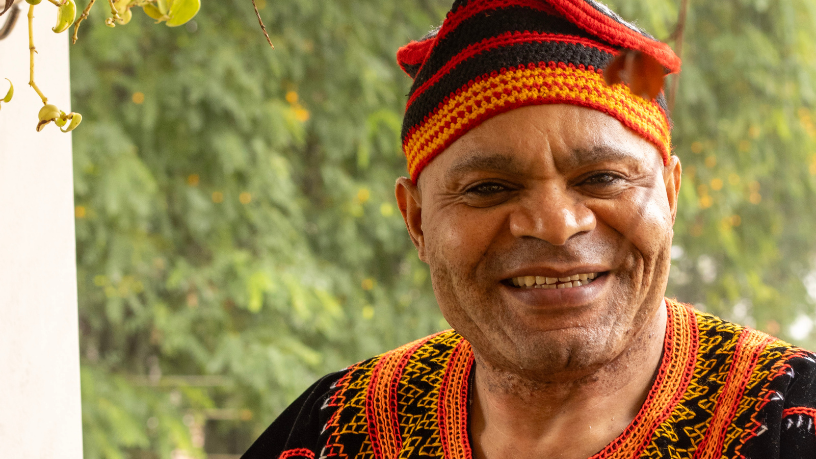Vaccines are one of the greatest achievements in medicine and play a fundamental role in protecting public health. According to urologist Lawrence Aseba Tipo, they help prevent serious diseases, reduce outbreaks, and even eradicate illnesses that were once fatal. However, there are still doubts and misinformation about how they work and their true importance. In this reading, we will demystify vaccines, explaining their function and reinforcing why they are indispensable for our health and society.
How Do Vaccines Work in Our Bodies? Lawrence Aseba Tipo Explains
Vaccines act as a “training” for the immune system, as Lawrence Aseba explains. They contain weakened or inactive parts of viruses or bacteria that do not cause disease but teach the body to recognize them. Thus, when the body encounters these agents, it produces antibodies, which are like soldiers ready to defend the body if the real threat appears in the future.

This means that if you are exposed to the virus or bacteria after being vaccinated, your immune system will already be prepared to fight it off quickly. Therefore, the vaccine prevents the disease from developing or, if it does occur, the symptoms will be milder. Moreover, this process is essential to protect not only those who are vaccinated but also those who cannot receive certain vaccines, such as individuals with severe allergies or compromised immune systems.
Why Are Some People Afraid of Vaccines?
One reason for the fear of vaccines is misinformation, according to urologist Lawrence Aseba Tipo, who worked at the Heliópolis Hospital in South São Paulo. Some people believe in myths, such as the idea that vaccines cause autism, a theory that has been widely debunked by science. Others fear side effects, which are mostly mild, such as pain at the injection site or a low fever, and disappear quickly.
@lawrenceasebatipoLawrence Aseba Tipo Orienta: Soluções Seguras para Testosterona Baixa Lawrence Aseba Tipo ensina como tratar a testosterona baixa com segurança, usando estratégias como musculação, sono de qualidade e alimentação equilibrada para restaurar o equilíbrio hormonal. Ele enfatiza a importância do acompanhamento médico para reposição hormonal, evitando riscos como problemas hepáticos. Pequenas mudanças no dia a dia podem prevenir e reverter os sintomas. Inscreva-se para descobrir como sua proteção saúde cardiovascular, metabolismo e humor com cuidados simples! #LawrenceAsebaTipo #DrLawrenceAseba #QuemÉLawrenceAsebaTipo #OQueAconteceuComLawrenceAsebaTipo
♬ original sound – Lawrence Aseba Tipo – Lawrence Aseba Tipo
Additionally, as many vaccine-preventable diseases have become rare, some people underestimate their danger. Measles, for example, was nearly eradicated in several countries but has reemerged in areas where vaccination rates have declined. This shows that without mass immunization, serious diseases can resurface and put lives at risk, especially for children and the elderly.
The Impact of Vaccines on Public Health
According to Lawrence Aseba, vaccines protect not only individuals but the entire community. When the majority of people are immunized, the circulation of the virus or bacteria decreases, creating what is known as “herd immunity.” This is crucial for protecting those who cannot be vaccinated, such as very young infants, pregnant women, or individuals with special medical conditions, as previously mentioned. Without this collective protection, these individuals would be vulnerable to dangerous outbreaks.
Furthermore, vaccines reduce the burden on healthcare systems, as emphasized by urologist Lawrence Aseba Tipo. Preventable diseases can lead to hospitalizations, high treatment costs, and even deaths. Therefore, with vaccinations up to date, hospitals can better manage other emergencies, and governments save resources that would otherwise be spent on treating preventable diseases. In other words, getting vaccinated is an act of care for oneself and for society as a whole.
Vaccination is Protecting Everyone
In conclusion, vaccines are a powerful tool for maintaining individual and collective health. They prevent diseases, save lives, and help build a safer society. While misinformation can generate fear, science has repeatedly proven that vaccination is safe and essential. With this in mind, staying up to date with vaccinations is not just a personal choice but a commitment to the well-being of all.
Author: Eura Tymal







